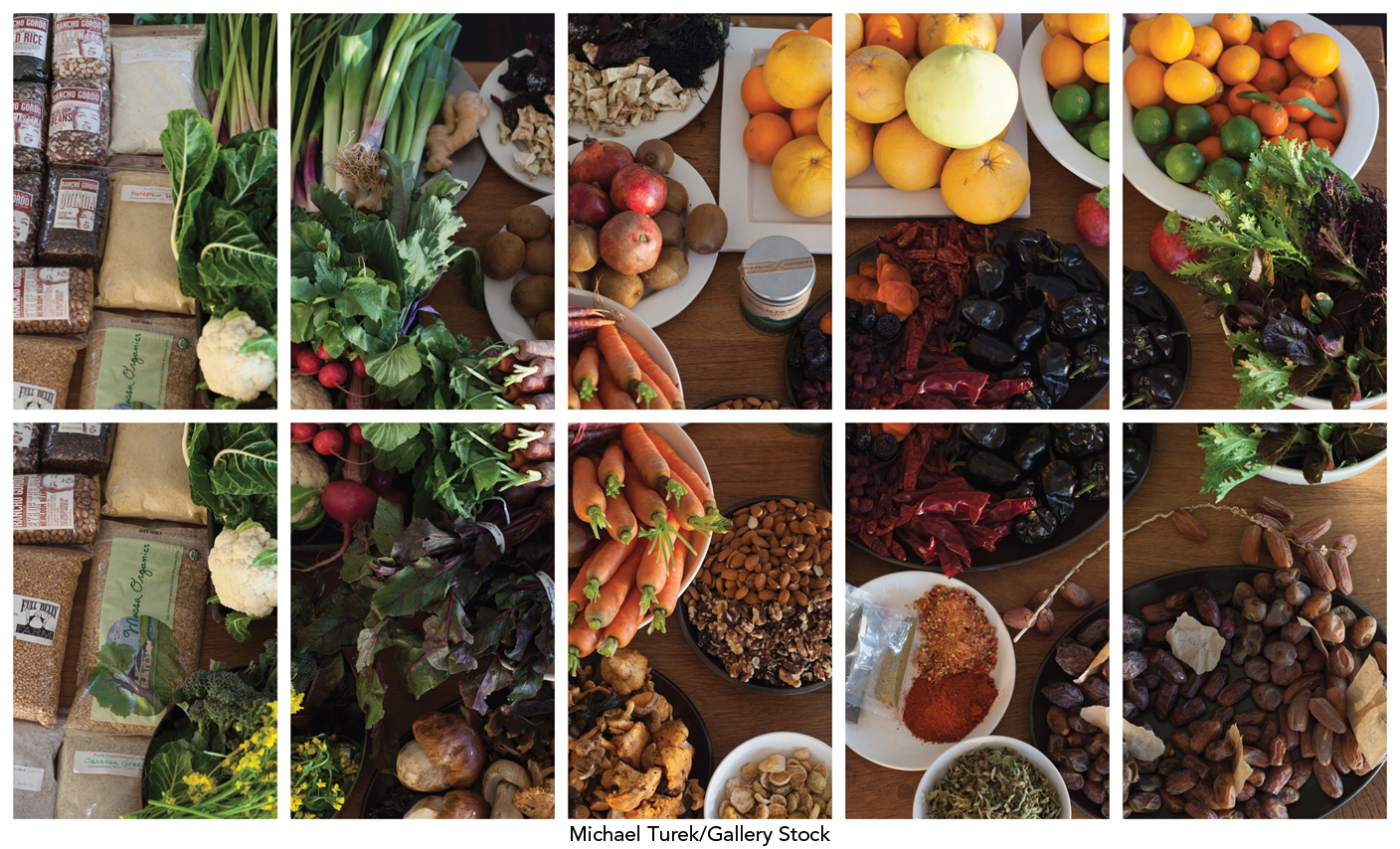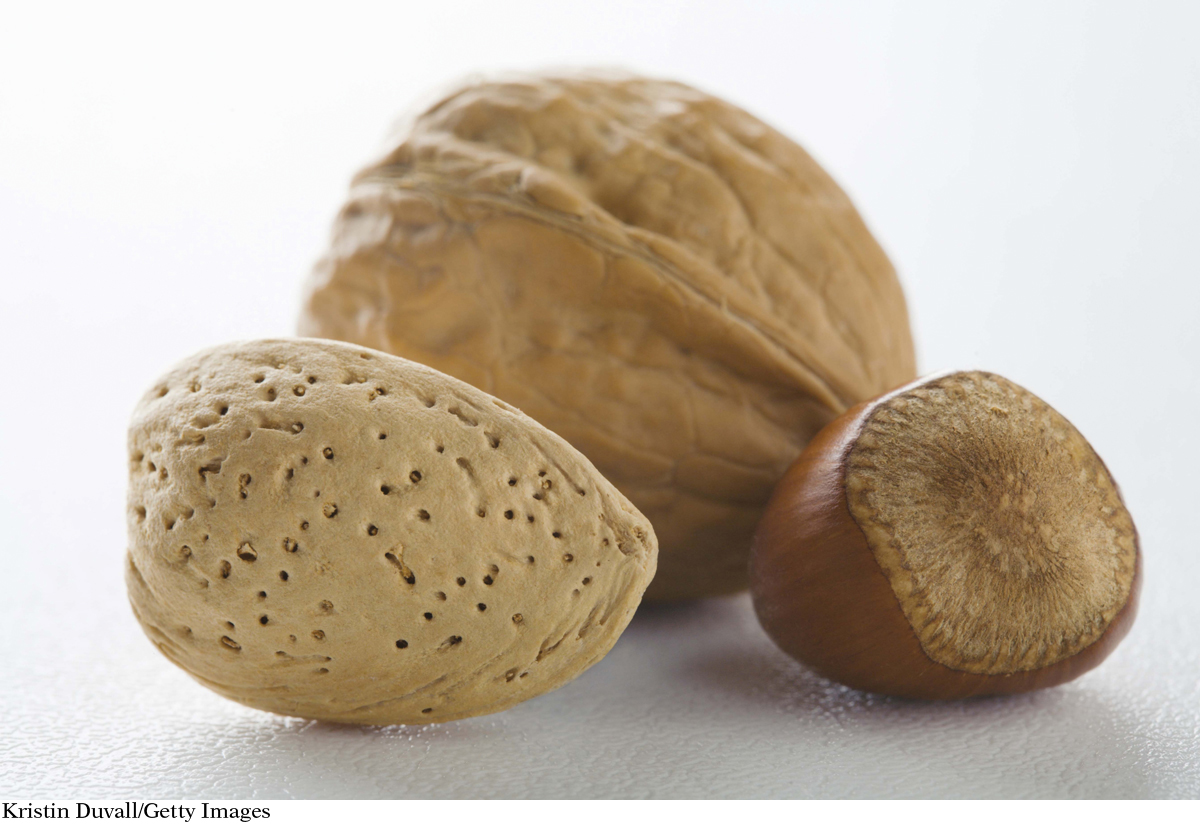Chapter Introduction

Michael Turek/Gallery Stock
Pass the Plants, Please WHAT DOES A SPANISH STUDY SAY ABOUT THE BENEFITS OF FOLLOWING A MEDITERRANEAN-LIKE DIET?
Page 187
LEARNING OBJECTIVES
Compare and contrast the types of vegetarian and semi-vegetarian diets (Infographic 9.1)
Describe the steps that occur during the development of cancer (Infographic 9.2)
-
Provide examples of two specific phytochemicals and their significant dietary sources (Infographics 9.4 and 9.5)
Identify challenges that vegetarians may experience in meeting their requirements for specific nutrients and provide strategies to alleviate these concerns (Infographics 9.6 and 9.7)
Compare and contrast the dietary recommendations and potential benefits of a vegetarian and a Mediterranean diet (Infographic 9.9)
In April 2013, a team of researchers published the results of a rigorous randomized controlled clinical trial that Forbes magazine proclaimed would “undoubtedly have a major effect in the field of nutrition.” The scientists, based in Spain, had spent years investigating the impact of a Mediterranean-like diet on the risk of heart attack, stroke, and death from heart disease compared with the effect of a traditional low-fat diet, the latter of which has long been recommended for its heart-healthy benefits in the United States and elsewhere.
The Spanish researchers assigned nearly 7,500 people at high risk of heart disease to three different groups. Two of the groups were told to eat a Mediterranean-like diet—rich in fruit, vegetables, nuts, olive oil, and whole grains and low in processed and red meats, dairy products, and sweets—while people in the third group, the control group, were told to reduce their intake of all types of fat, and consume lean meats, low-fat dairy products, cereals, potatoes, pasta, rice, fruits, and vegetables. Individuals in one of the Mediterranean diet groups were given weekly gifts of high-quality olive oil to encourage their consumption of this rich source of monounsaturated fat, while participants in the other Mediterranean diet group were given weekly gifts of mixed nuts to foster an increase of their nut intake.
Page 188
Although the researchers had planned to observe the individuals and collect data for five years, the trial was so successful that they had to stop it short. The Mediterranean diet seemed to work so well to prevent heart attacks, strokes, and heart disease–related deaths that it would have been considered unethical to allow the people in the control group to continue their assigned low-fat regimen, which was clearly much less effective. Indeed, the Mediterranean dieters who were given olive oil had a 30% reduced risk of heart problems over the five-year period compared with the low-fat dieters, while those who had been given mixed nuts had a 28% reduced risk of heart problems or heart-related death compared with the low-fat dieters.

Two groups of participants in the Spanish PREDIMED study consumed daily servings of either nuts or olive oil.
Kristin Duvall/Getty Images
Lead researcher Emilio Ros says he was quite surprised by the diet’s efficacy, considering that the people eating the Mediterranean-like diet weren’t directed to do other heart-healthy things, like limit their caloric intake or exercise. The trial showed “that a healthy dietary pattern such as the Mediterranean diet is as potent as modern drugs to reduce cardiovascular risk.”
MEDITERRANEAN DIET a dietary pattern traditionally followed in Mediterranean countries that has been proven to have health benefits
PLANT-BASED DIET a diet that emphasizes whole plant foods, limits processed foods, and may or may not include foods of animal origin
A Mediterranean diet is similar to a plant-based diet. Both eating plans emphasize the consumption of fresh fruits and vegetables, and the avoidance of processed or refined foods, but plant-based diets limit the consumption of animal foods or omit them entirely. Mediterranean diets, however, include fish and occasional consumption of lean protein sources like poultry. Specifics aside, most nutritionists agree that Americans should be eating far more plant foods than they are—and the general public seems to know this, too. According to recent Gallup surveys, Americans say that “eating more fruits and vegetables” is the most important change they can make to their diet, and that eating fewer animal foods, particularly red meats and processed meats that are smoked or cured or salted, would likely be advantageous, too.

